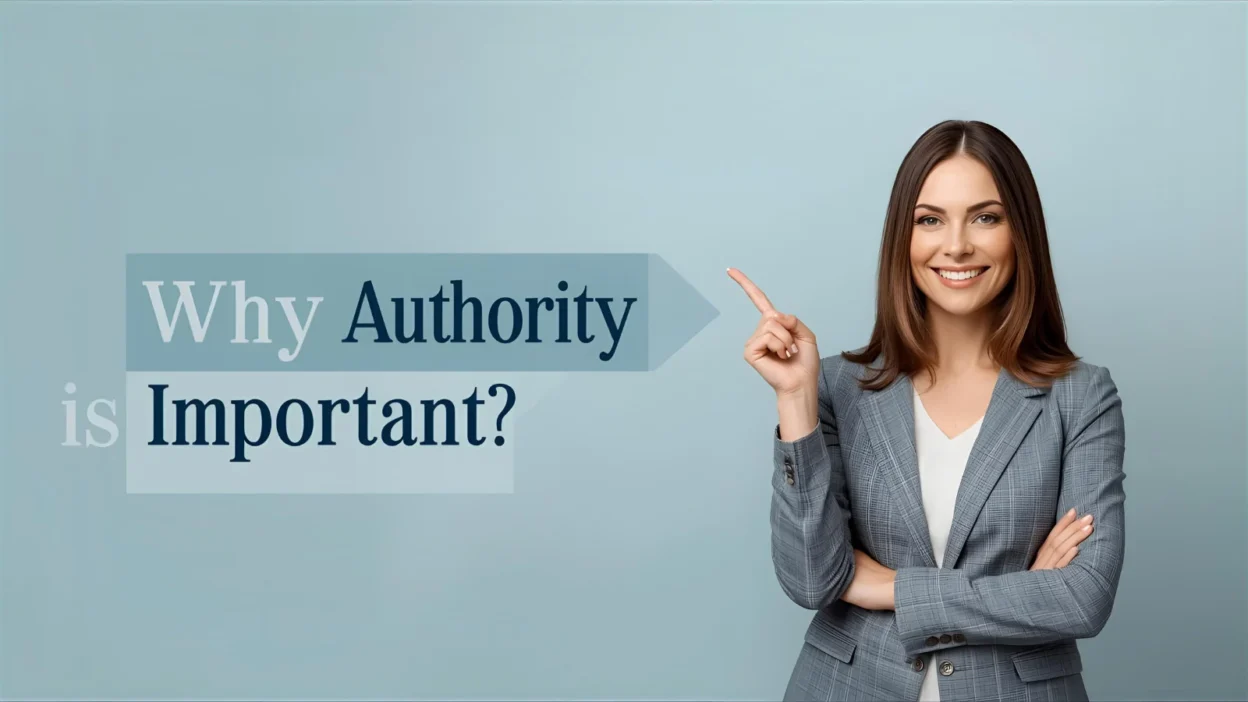Authority shapes the way societies, organizations, and even families function. Without it, there would be chaos, confusion, and lack of direction. At the same time, authority isn’t about blind control—it’s about guidance, responsibility, and structure.
This article explores why authority is important, its role in personal life, communities, and nations, and how it balances freedom with responsibility.
Understanding the Meaning of Authority
Authority refers to the right or power to make decisions, give orders, and enforce rules. It exists in every part of life:
- Parents guiding children.
- Teachers directing students.
- Governments creating laws.
- Managers leading employees.
📌 Simple definition: Authority is the recognized power that ensures order and cooperation.
The Psychology Behind Authority
Psychologists note that authority is deeply connected to human behavior:
- People often seek guidance from authority figures in uncertain situations.
- Respect for authority provides a sense of safety and structure.
- Too much or abusive authority, however, can lead to rebellion and mistrust.
💡 Authority works best when it is fair, just, and respected, not feared.
Why Authority Is Important in Society
Without authority, society would quickly fall into disorder. Here’s why it matters:
- Maintains law and order.
- Protects rights and freedoms by enforcing laws.
- Provides structure in education, work, and governance.
- Encourages accountability and responsibility.
🌍 Example: Traffic laws only work because drivers respect the authority of the police and legal system.
Authority in Personal Life
Authority is not limited to governments—it influences personal growth too:
- Parents’ authority teaches discipline and values.
- Teachers’ authority shapes education and learning.
- Mentors’ authority inspires career and life choices.
📌 Personal authority also means being in control of your own decisions.
Authority vs. Anarchy: Striking the Balance
| Authority | Anarchy |
|---|---|
| Provides order and rules | Leads to chaos |
| Encourages cooperation | Encourages conflict |
| Builds trust in systems | Weakens institutions |
| Protects society | Leaves people vulnerable |
💡 Authority prevents disorder, but it must be balanced with freedom to avoid oppression.
Types of Authority
Authority exists in multiple forms:
- Legal authority – based on laws and rules (courts, governments).
- Traditional authority – based on customs and traditions (elders, monarchs).
- Charismatic authority – based on personality and influence (leaders, visionaries).
- Expert authority – based on knowledge and skill (doctors, scientists).
- Parental authority – guiding children with love and discipline.
📌 Authority is not “one-size-fits-all.” Each type has its role.
Real-Life Examples of Authority in Action
- Government authority – creating policies and laws.
- Military authority – ensuring national security.
- Workplace authority – managers leading projects.
- Community authority – local leaders solving disputes.
🌟 Authority provides stability and guidance across all these areas.
How Authority Fuels Growth and Stability
- For individuals – authority figures provide mentorship and boundaries.
- For organizations – authority ensures teamwork and direction.
- For nations – authority creates justice and security.
✨ Authority is the foundation of growth with order.
The Role of Authority in Relationships
Healthy relationships require balanced authority:
- Parents guide children with care, not control.
- Leaders inspire followers, not dominate them.
- Teachers direct students while encouraging independence.
💡 Respect for authority builds stronger trust and cooperation.
Economic Importance of Authority
- Personal level – financial authority helps in money management.
- National level – governments regulate trade and protect economies.
- Global level – international authorities ensure fair practices.
💰 Authority ensures fairness and regulation in economics.
Challenges to Authority
Authority often faces resistance:
- Abuse of power – when authority turns into oppression.
- Corruption – weakens trust in leaders.
- Rebellion – when people feel authority is unfair.
- Generational shifts – young people may question traditional authority.
📌 Authority must be earned through fairness and respect.
How to Build and Maintain Authority
- Lead with integrity and fairness.
- Earn respect, not fear.
- Balance discipline with empathy.
- Be consistent and transparent.
🌱 True authority is not imposed—it’s earned through trust.
Idioms and Expressions Related to Authority
- “Lay down the law” – to enforce rules strictly.
- “Pull rank” – to use one’s authority over others.
- “Call the shots” – to be in charge.
- “Throw one’s weight around” – to misuse authority.
Language shows how authority is seen both positively and negatively.
Synonyms for Authority (with Usage Examples)
| Synonym | Example Sentence |
|---|---|
| Power | The police have the power to enforce laws. |
| Control | The manager has control over project decisions. |
| Command | The general took command of the army. |
| Rule | The country is under democratic rule. |
| Influence | Her influence shaped the company’s future. |
Grammar Note: “Authority” vs. “Authoritative”
- Authority = noun (the power or right).
- The teacher has authority in the classroom.
- Authoritative = adjective (commanding and reliable).
- She gave an authoritative answer based on research.
📌 Common mistake: using “authority” when “authoritative” is correct.
The Future of Authority in a Changing World
Authority is transforming in the digital age:
- Digital authority – online platforms and content creators shape opinions.
- Decentralized authority – blockchain and new technologies challenge old systems.
- Shared authority – workplaces move towards collaborative leadership.
- Global authority – international cooperation in health, environment, and trade.
🌍 Authority is adapting, but it will always remain essential.
FAQs About Why Authority Is Important
Q1: Why is authority important in society?
It maintains order, law, and cooperation.
Q2: What happens without authority?
Chaos, conflict, and lack of direction.
Q3: What makes authority legitimate?
Fairness, respect, and acceptance by people.
Q4: Is authority always positive?
No—abuse of authority can lead to oppression.
Q5: How can authority be improved?
By being transparent, fair, and respectful.
Conclusion
Authority is more than power—it’s about guidance, responsibility, and stability. It shapes societies, families, and organizations by providing structure and direction. Without authority, the world would sink into chaos. But with fair, just, and respected authority, people and nations thrive.
As John Locke once wrote: “Where there is no law, there is no freedom.”
Authority is important not to limit freedom—but to protect and guide it. ⚖️

Sara Taylor is a content writer at Whygenix.com, creating clear, engaging articles that simplify complex ideas, helping readers understand the why behind topics in education, lifestyle, and personal development.




